EXPLORE
JAPAN ON THE RHINE
EXPLORE
JAPAN ON THE RHINE
Western Germany’s Düsseldorf is home to one of Europe’s largest Japanese communities. Driving the new Mazda CX-80 PHEV, Zoom-Zoom discovers the magic of the area known as Little Tokyo.
Words Ed Cooper / Photography Rama Knight / Films Tim Boydell
If you ever find yourself exploring Düsseldorf, Germany, take a moment to absorb the atmosphere of Little Tokyo – one of the city’s most talked-about districts. With over 8,400 residents of Japanese origin and more than 400 active Japanese companies, it’s easy to close your eyes and, amid the aroma of fresh food and local chatter, feel as if you've been transported to the haute cuisine and steamy izakayas (traditional Japanese bars) of Tokyo itself.
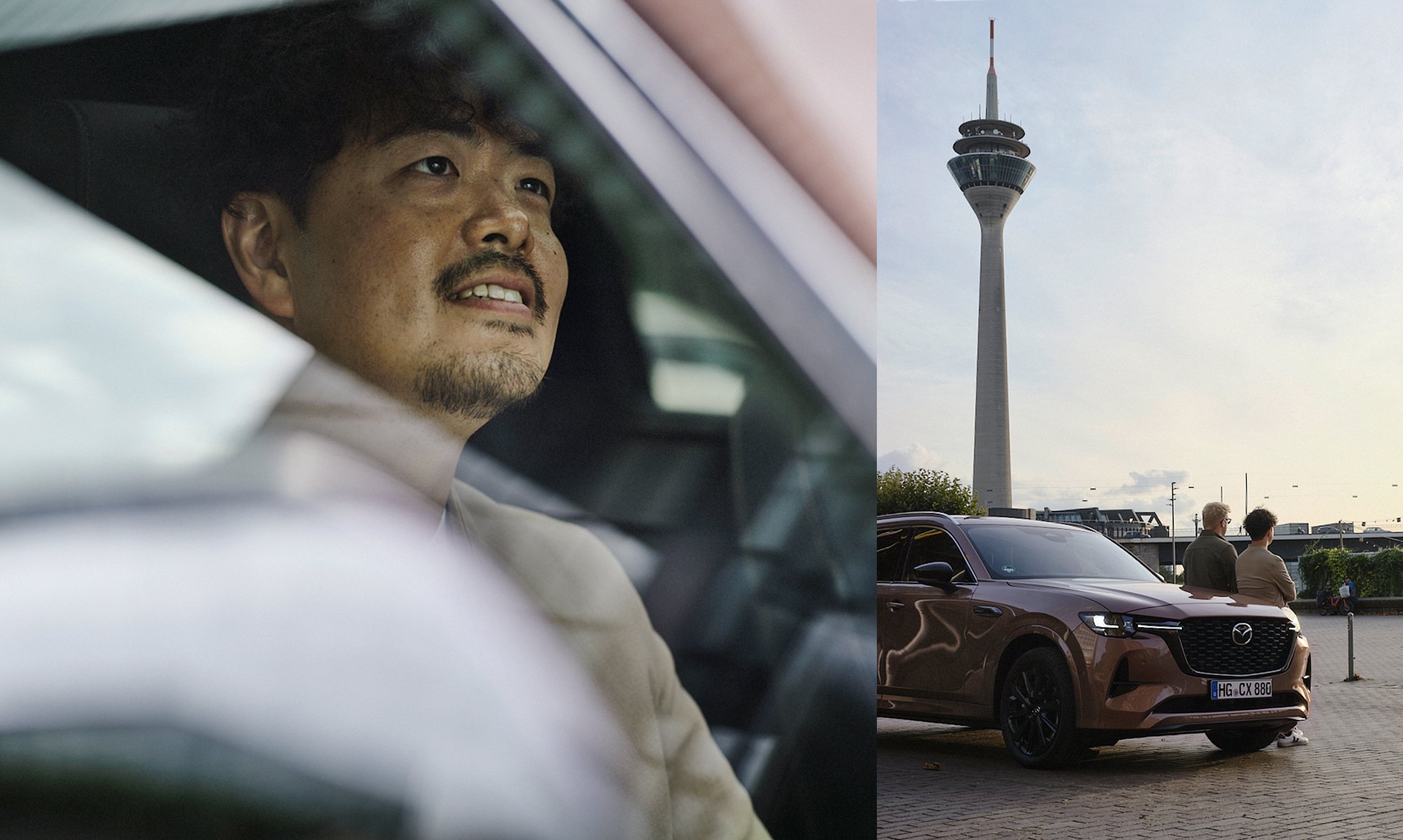
Mazda’s Atsushi Yoshii shares stories about Little Tokyo’s unique community.
Yet, somewhat incredibly, my discovery of this vibrant community, also known as Japantown or Klein-Tokio am Rhein, happens purely by chance. For that, I have Atsushi Yoshii – a Japanese Düsseldorf local and an aftermarket support expert at Mazda – to thank. He’s joined me for the first leg of my journey, from Mazda’s Leverkusen headquarters back towards Düsseldorf along the sparkling water’s edge of the Rhine.
The Mazda CX-80’s highly responsive driving dynamics make light work of the high-speed autobahns, and Yoshii and I drive in total comfort. As we clock up the miles, Yoshii begins to share stories about Little Tokyo’s unique community, known for its award-winning restaurants, authentic tea rooms, and serene Japanese gardens, all hidden in plain sight.
“We feel at home in Düsseldorf, because we feel the culture of Japan here,” he explains. “It’s a special place for us, as it has the same culture and the same spirit as Japan.” This spirit, Yoshii says, is one of “kindness, co-operation and respect.” And, he explains, it’s at Little Tokyo’s eateries where omotenashi, the Japanese philosophy of selfless hospitality, is the order of the day. “It started only in Japanese restaurants, but now almost all of the restaurants have that omotenashi spirit,” he says.
“It’s a special place for us, as it has the same culture and the same spirit as Japan.”
ATSUSHI YOSHII, AFTERMARKET SUPPORT EXPERT, MAZDA
As we enter the city limits, the start-stop nature of inner-city driving sees me switch the CX-80 into pure EV mode. At the flick of a switch, the SUV’s plug-in hybrid powertrain uses all-electric driving to keep emissions to a minimum.
All too soon, I say goodbye to Yoshii but remain determined to find out more about this little part of Düsseldorf. I set the onboard navigation for Nagaya – a Michelin-starred restaurant in Little Tokyo – and park the CX-80 nearby.
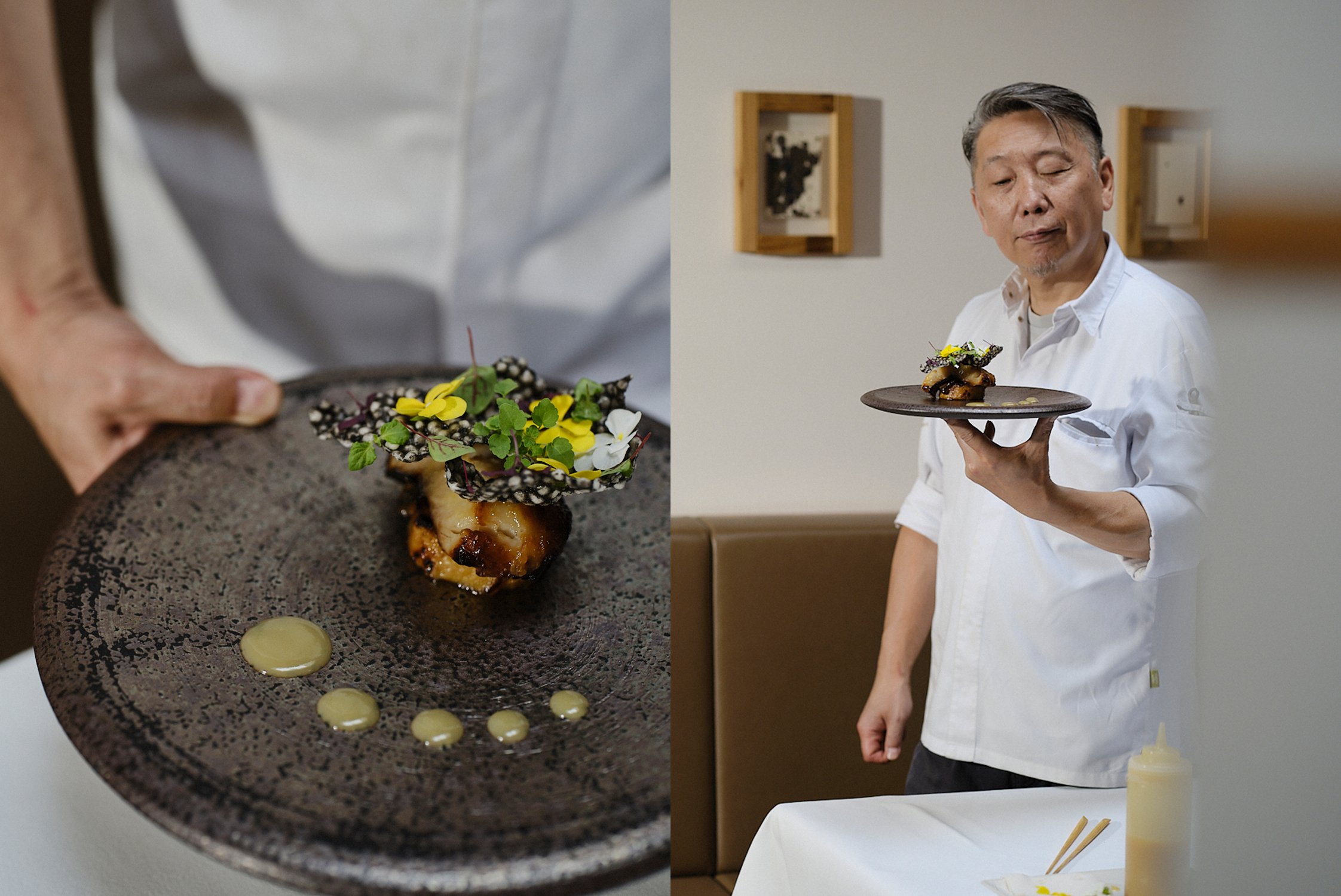
Headed by chef Yoshizumi Nagaya, the restaurant blends European haute cuisine with traditional Japanese gastronomy. “It’s modern, but the technique is classically Japanese,” says Nagaya, who first came to Düsseldorf in 2000. “Japanese cuisine is always subtracting – it’s taking away specific parts of tastes. But here in Germany, we are adding flavours, like rosemary, pepper, and parsley. It’s a contradiction between these cuisines, visions, and styles. I tried to combine them and create something new.”
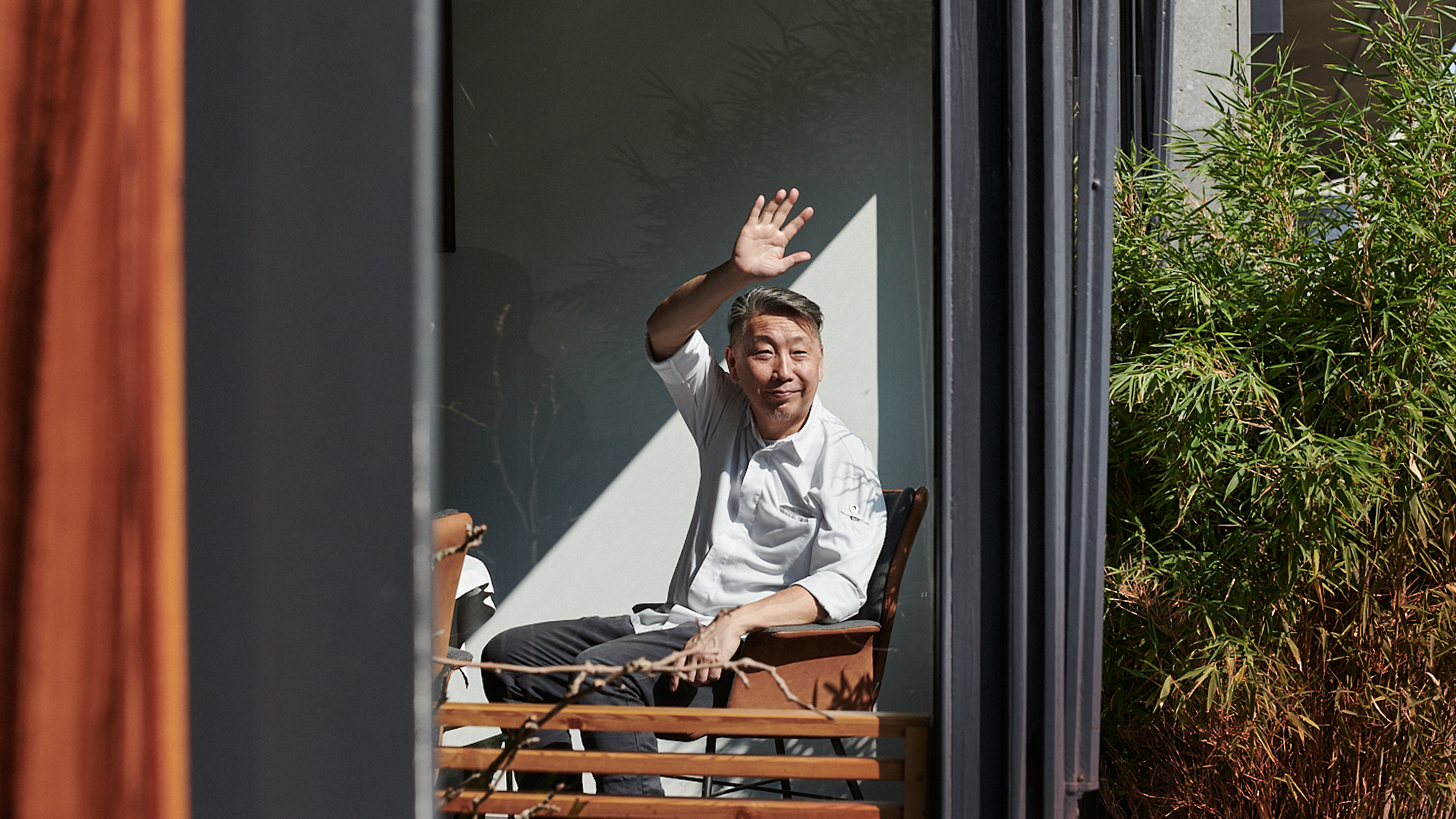

If the multiple awards and the wall-to-wall lunchtime bookings are anything to go by, Nagaya’s talented team has struck gold. Yet that’s not what they’re focused on. Instead, it’s all about the smiling faces. “I’m not cooking for the awards,” he stresses, echoing Yoshii’s earlier sentiments. “I’m cooking for the guests.”
“I’m not cooking for the awards. I’m cooking for the guests.”
YOSHIZUMI NAGAYA, OWNER AND CHEF, NAGAYA
Nearby, Anna Friedel is offering a similarly immersive experience through Sencha-do tea ceremonies at Anmo. In her space, metres from Immermannstrasse, tea mastery and modern art combine for a multi-sensory experience. “It’s a way of connecting and bringing people together,” Friedel explains to me, over a warming cup of Japanese matcha she’s made meticulously from scratch. “The tea will calm your mind and relax your body, and you will be more sensitive to everything. All your senses will be sharpened.”
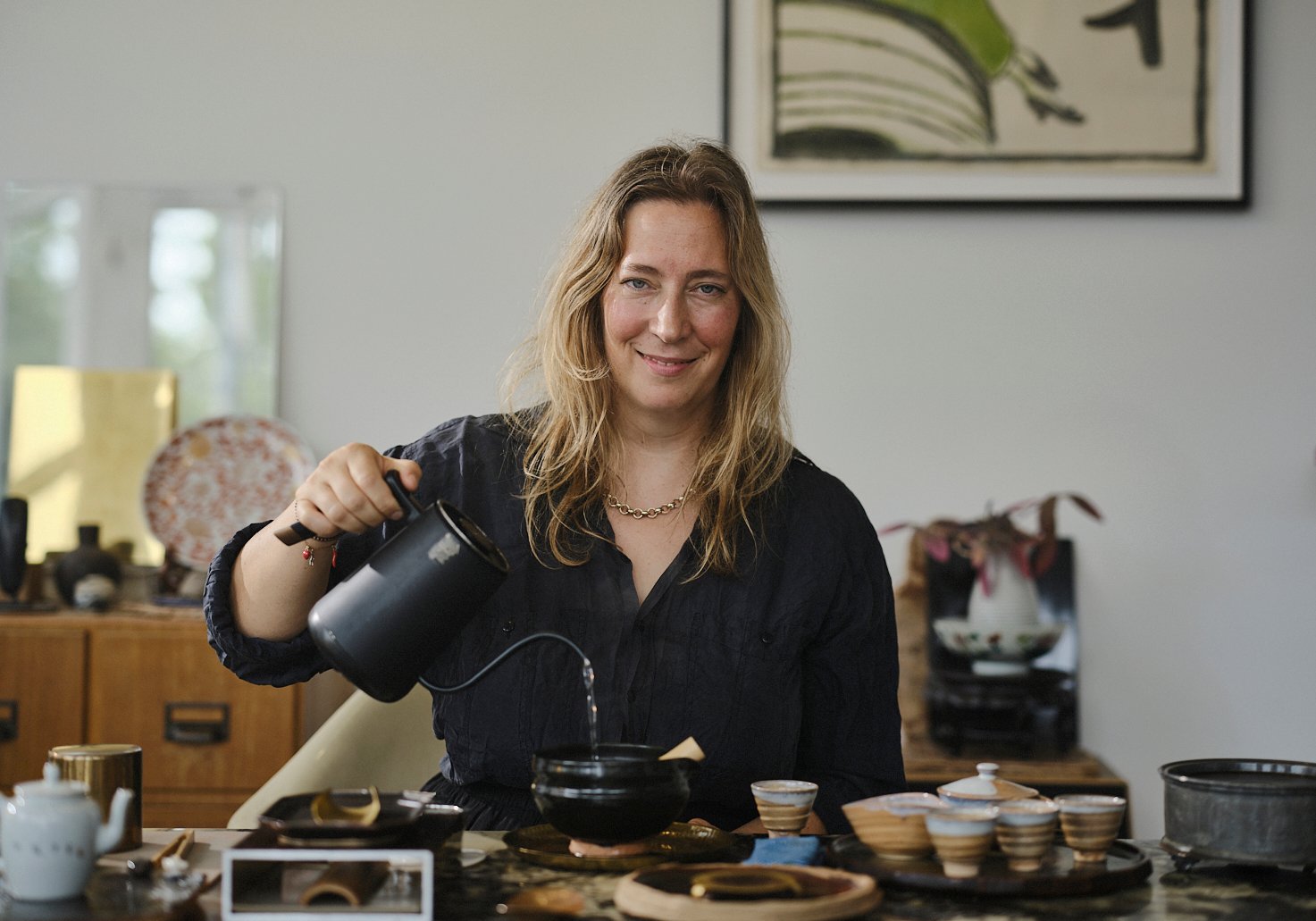
With light flooding through the windows, it’s an inspiring space. “A space like this is very important,” Friedel explains. “Things can react and come together… and the tea is the common bond.” Friedel’s Little Tokyo studio helps her connect with, and draw inspiration from, the wider Japanese community. “The languages you hear, the people you meet and encounter, all mean you can have a great [cultural] exchange.”
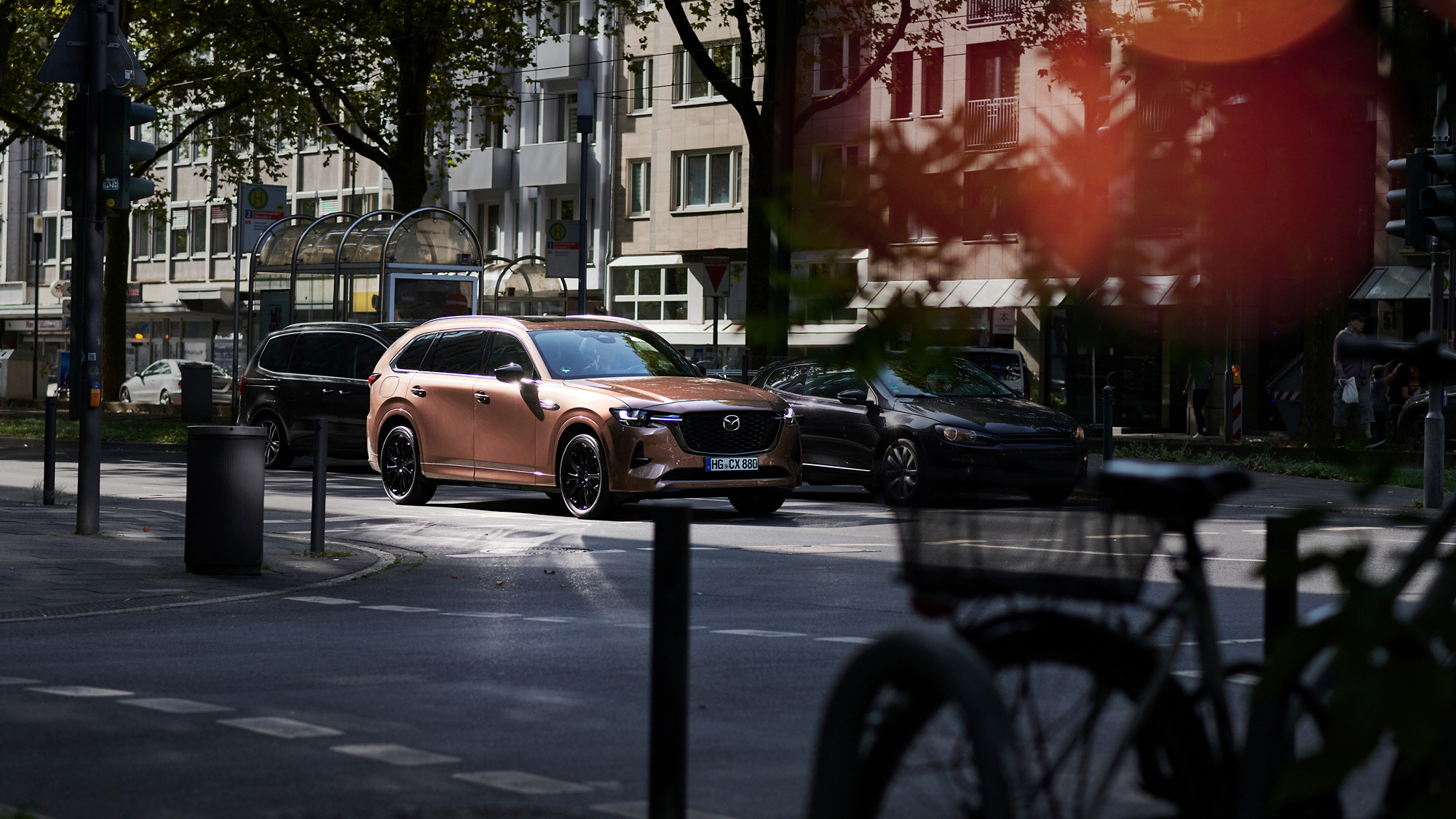

Düsseldorf’s cultural impact is something that Takao Baba, a local dance instructor and choreographer, knows all about. Teaching at the city’s tanzhaus – a centre for contemporary dance in a reclaimed streetcar depot – Baba explains that his father was “one of the first Japanese people here in Düsseldorf,” and, just like his forebear, Baba has been making his own waves. “We created the dance scene here 20 years ago,” he says. “Düsseldorf is now the spot for urban dancing, even before Berlin.”
“This is where I feel at home.”
TAKAO BABA, DANCE INSTRUCTOR AND CHOREOGRAPHER
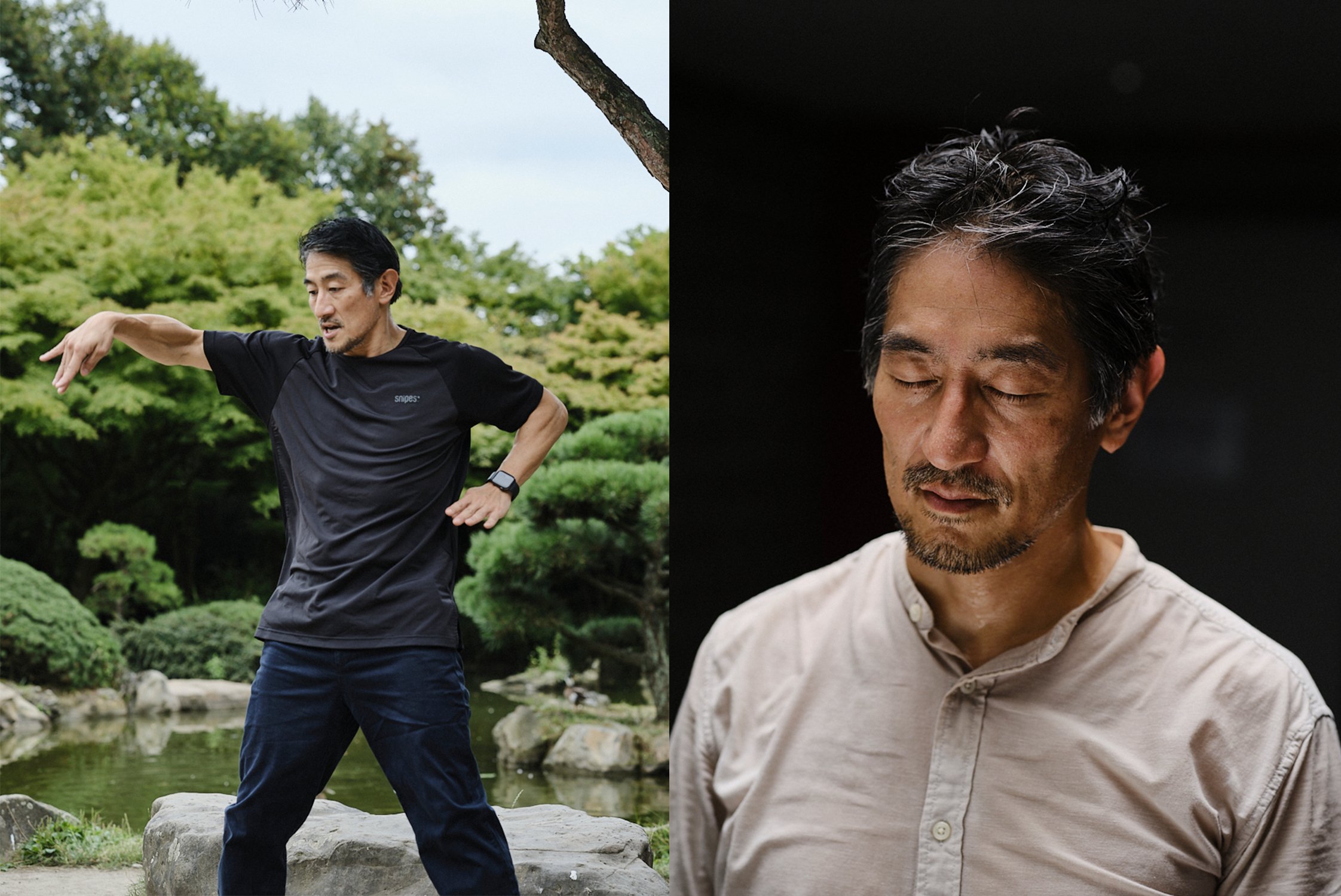
As with any artist operating in a vibrant subculture, he draws on many things for inspiration, from martial arts – “I can always go back to my roots,” he says, incorporating elements of karate, jiu jitsu, and Muay Thai into his routine – to, more conceptually, the river Rhine itself. “This is my inspiration,” he says. “This is where I feel at home.”
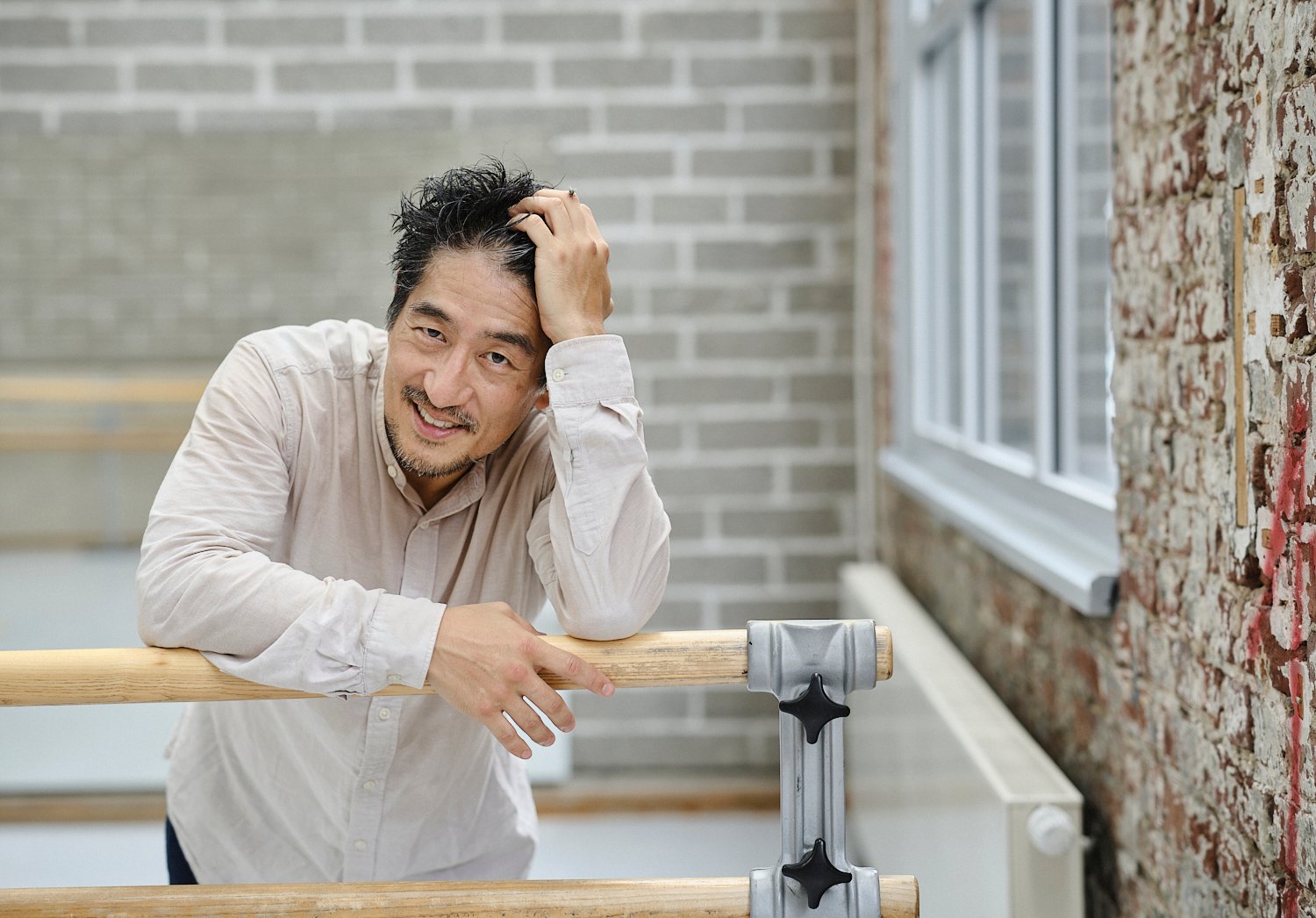
Such is the magic of Little Tokyo and its communities. As I step back into the CX-80 and point it back home toward Leverkusen, I reflect on how such a small place can play countless different roles for visitors, locals, and anyone in between. For some, it’s a place to try new cuisine; for others, it’s a destination to learn new languages and explore new cultures. If you find yourself exploring Little Tokyo one day, introduce yourself with a “Hallo” or “Konnichiwa” and see where it can take you.
Find out more